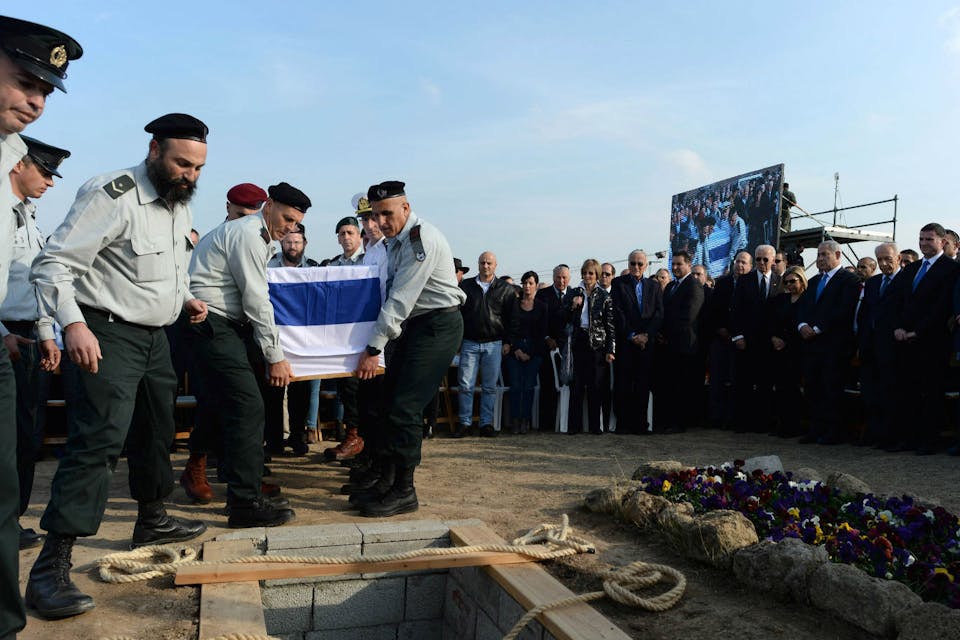
February 2, 2017
Prayers for the Departed
The two disparate texts intoned at Ariel Sharon's funeral tell us much about contemporary Jewish attitudes toward life, death, and the land of Israel.
Next Monday, according to the Hebrew calendar, is the third anniversary of the death of Ariel Sharon, the late prime minister of Israel. Thinking about that event has brought to my mind El maley raḥamim (“God full of mercy”), the brief prayer for the departed that is recited at funeral services, on the anniversary (yortsayt) of a death, and on visiting the graves of deceased relatives. Before reverting to Sharon’s death and funeral service, I want to explore the prayer itself.
In the Ashkenazi rite, El maley raḥamim is also part of the memorial service (Yizkor) on the festivals and on Yom Kippur, the Day of Atonement. Rabbi Yissachar Jacobson (1901-1972), a meticulous historian of the prayer book, notes that the prayer entered the memorial service only after the 1648-49 Chmielnicki massacres in Eastern Europe, which explains the many different versions originating in various European communities (Nemirov, Lublin, Prague, etc.). It’s unsurprising that the prayer’s one well-known melody is that of a Polish-Jewish lament:
God full of mercy,
who dwells on high,
furnish fitting rest
under the wings of the divine presence
in the sacred and pure heights,
radiant as the sky’s light,
for the soul of [a], son of [b],
who has gone to the world to come,
because [c] gave alms
for the remembrance of his soul.
Therefore the Master of all mercy
will secrete him in the mysteries of His wings for all time
and bind his soul in the bond of life.
God is his reward;
in Paradise shall be his repose;
and in peace shall he rest.
And let us say: amen.